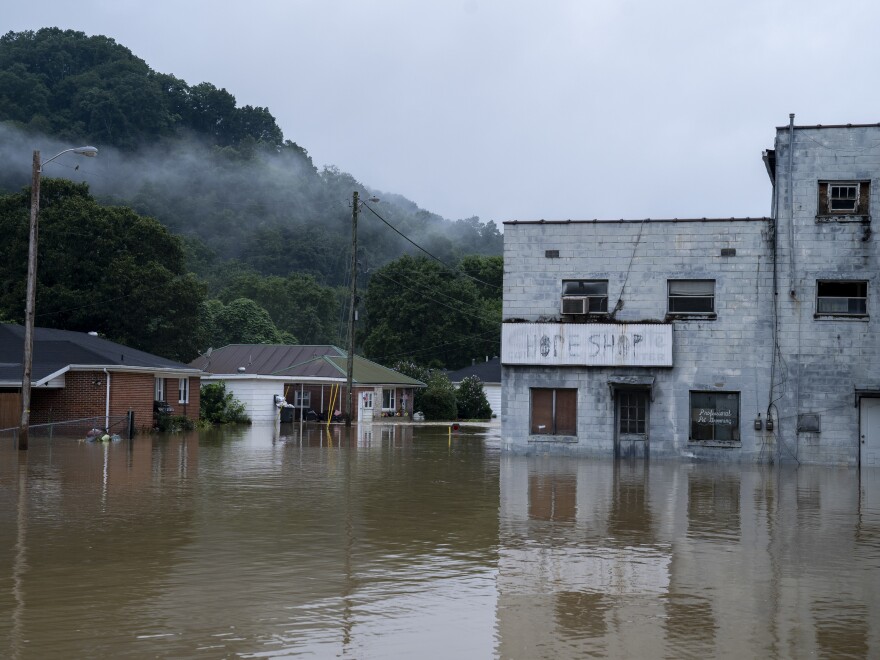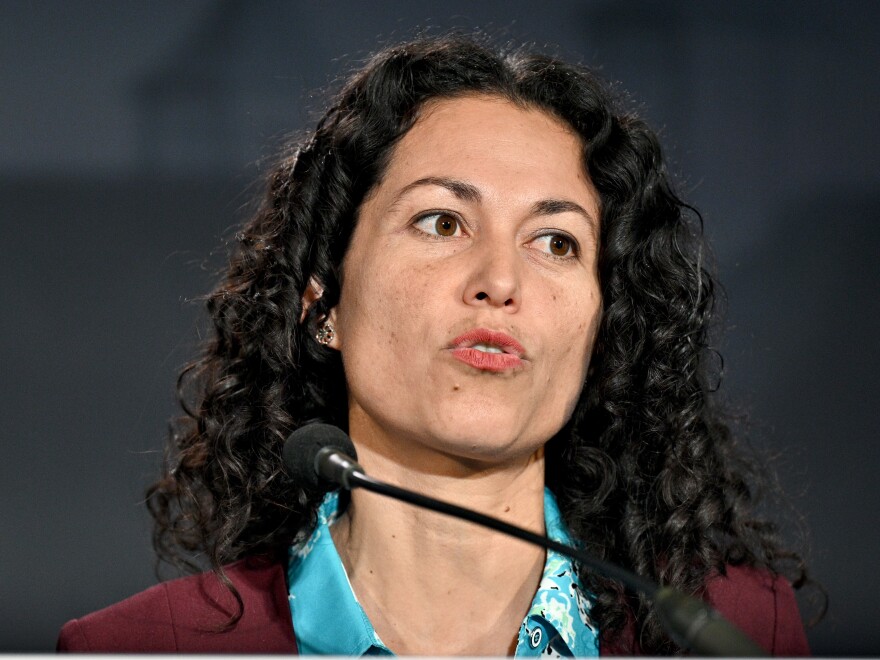Mayor Laura Thomas knows there are a lot of federal programs that could help her small town of Jackson, Ky., recover from a series of recent disasters: two historic floods, a destructive ice storm and the pandemic.
The problem is: it's hard to know exactly where to start to go about getting the funding.
There are more than 400 federal programs designed for rural communities. And there's a new influx of funding passed in the last Congress from the trillion-dollar infrastructure law and the climate incentives of the Inflation Reduction Act.
"This is kind of like our one shot probably in my lifetime of ever getting this much federal money to help us make improvements in the community," Thomas said.
But like many small-town mayors, Thomas doesn't have grant writers or experienced staff to help sift through the programs. She says it's "overwhelming" to try to figure out how to navigate them. "We just get a different kind of answer each time you ask," Thomas said. "And then my fear is that I won't make the right decision."
There's a lot at stake for Breathitt County, Thomas' corner of southeastern Kentucky, where the 2022 flood killed at least 37 people and destroyed the homes of thousands.
"A lot of people are living in camper trailers that are still considered sheltering and they want opportunities to get into something permanent and they don't want to have to leave the mountains," Thomas said. "This is their home."

The Rural Partners Network is trying to be a 'matchmaker'
The White House knows this is a problem across the country. So a year ago, it created a pilot program called the Rural Partners Network, naming point people to serve as guides to federal funding in select portions of 10 states and Puerto Rico.
Run by the U.S. Department of Agriculture, the network includes 10 communities and involves 60 "rural desk officers" from 20 federal agencies.
"I like to say that we're matchmakers when it comes to rural communities and our federal agencies that are at the table," said Rachel Chambers, one of the community liaisons in Kentucky.
"We can help move projects forward, whether it's capacity building or technical assistance and different grant programs, or even if it's just making an introduction for a community," she said.
In some cases, it has led to policy changes. Chambers learned that home repair grants were not covering the costs for families in southeast Kentucky to be able to rebuild their homes after the floods.
USDA officials were able to raise the cap on grants to $36,000 from $10,000 for all areas that had been declared presidential disasters in 2022.
The program has also helped the tiny town of Darling, Miss., where residents have struggled with failing septic systems, leaving sewage flowing into creeks and ditches.
"We've got a real issue in terms of sanitation and health," said Ines Polonius, the chief executive of Communities Unlimited, a nonprofit that works in seven southern states. The program helped the town secure a $2.5 million grant for a wastewater project. And they got an answer quickly, within four months. "A project like this would normally take two years," Polonius said.

The program currently helps only a select group of communities
While the program is small, the administration said it's getting results. Network staff has held nearly 200 meetings with more than 800 local governments and nonprofits to try to match problems with solutions, said USDA Undersecretary for Rural Development Xochitl Torres Small.
"Having the additional staff on the ground makes a huge difference," Torres Small said. "They can take the time to do the convening and the planning that's so crucial for pursuing a grant or a loan and having those plans that really make it a feasible project in the first place."

Torres Small said the network has led to $262 million of federal money flowing to communities in the network in its first year.
And that's just a slice of the total federal grants going to rural areas beyond the program. The White House said in fiscal 2021, there were 55 such awards totaling $880 million. That grew in fiscal year 2022 to 122 awards totaling more than $2 billion. The jump includes awards from the new infrastructure law.
But the pilot program covers just a small fraction of rural areas in the country. For example, Laura Thomas' town of Jackson, Ky., is not included in the network.
And there are entire states that have no help at all. Ethan Dunbar is mayor of Lewisville, Ark., where the city lost water twice in 2019. The town has no maps to show where sewage pipes might be outdated and relies on its residents to report issues. He has secured some federal grants himself but said more help is needed.
"So every now and then you get a win, but most times you lose," Dunbar said. "Every one of these small rural communities have issues with their water distribution, and this is a system that's a basic necessity. But we don't have the funds to bring those systems up to date."
The Biden administration wants to expand the Rural Partners Network to more communities. But that depends on funding from Congress. In his 2022 budget proposal, Biden asked lawmakers for nearly $40 million for the program. Congress has only given $10 million so far.
There is a long pattern of rural areas being ignored and left behind, said Jim King, president of Fahe, a nonprofit organization working to develop rural Appalachia. He recalled Clinton-era empowerment zones and the Obama-era promise zones that sought to accomplish some of the same goals at the Rural Partners Network.
But none of the programs have had staying power, King said, noting the problems in rural America need a long-term view when most politicians are looking for "shovel-ready" short-term fixes.
"They have a short attention span," King said.
Copyright 2023 NPR. To see more, visit https://www.npr.org.



